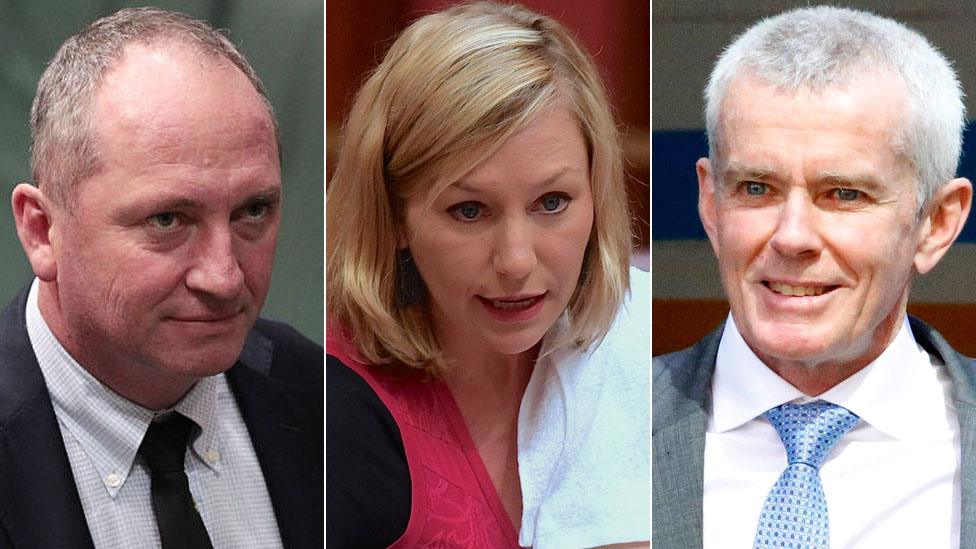Nick Xenophon: Influential Australian senator to resign
- Published

Nick Xenophon will resign from Australia's Senate
An influential Australian politician has revealed plans to quit the Senate, saying he will leave even if not ruled ineligible as a dual citizen.
Nick Xenophon, a minor party leader, will depart federal politics to run for South Australia's state parliament.
He is among seven MPs whose eligibility will be tested in court next week. He said the citizen saga had delayed him leaving, an idea he hatched last year.
The powerbroker's exit could complicate government efforts to pass legislation.
"It is my intention irrespective of the [court] outcome to leave the federal parliament and drive a campaign for real change in South Australia," Mr Xenophon said on Friday.
MPs cannot be foreign citizens under Australia's constitution, but its exact definition is being disputed by Mr Xenophon, a UK dual national, and others including the government.
Mr Xenophon said he had contemplated resigning long before learning of his citizenship predicament. He remains confident he has a "very good" legal case, despite it not affecting his move to state politics.
Senate vacancy
As leader of the Nick Xenophon Team, the senator has been responsible for the fourth-largest voting bloc in Australia's upper house.
Prime Minister Malcolm Turnbull does not have a majority in the Senate, meaning he has often relied on Mr Xenophon and his allies to pass legislation.
Mr Xenophon will be replaced by a member of his party, unless he loses the citizenship case, in which case there would be a recount from the 2016 election.
"His potential replacement will be inexperienced, and that can be unpredictable. This will not be Turnbull's preferred choice," politics lecturer Peter Chen, from the University of Sydney, told Reuters.
Mr Xenophon is expected to draw significant support in state politics in his native South Australia, where the centrist politician is most popular.
His party will contest South Australia's 2018 election with at least a dozen candidates, potentially reshaping the state's politics.
- Published27 October 2017
